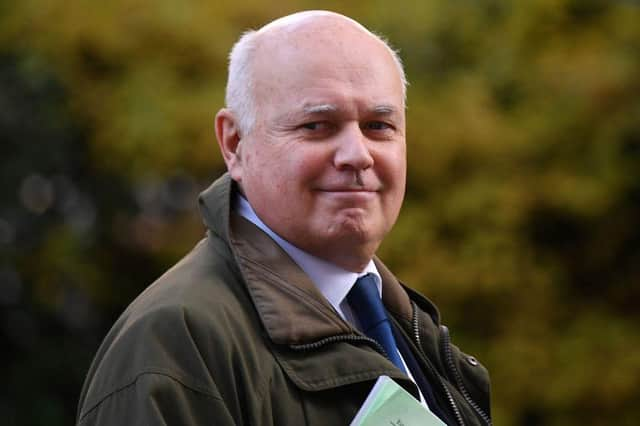Universal Credit: £20 a week cut makes little economic sense and will leave poorest people unable to feed their children – Brian Wilson


To many, 20 quid is the cost of a taxi fare or an average restaurant meal. That does not denote great wealth but a modest level of disposable income that helps make the economy go round.
Yet, according to the Joseph Rowntree Foundation, removing the 20 quid would plunge more than a third of those on Universal Credit into debt with a similar proportion left unable to feed their children.
Advertisement
Hide AdAdvertisement
Hide AdTwenty quid a week – that is how fine the margins are and while Universal Credit is the issue of the hour, the statistics confirm a stunning level of entrenched inequality which would be exacerbated by the cut but will never be challenged until it becomes the first priority of government.
That applies to Edinburgh as much as Whitehall. On the wider issue of entrenched inequality, benefits are one lever among many including education, health, funding of council services... they all contribute to the same outcomes.
The scale of dependency on Universal Credit tells the shocking story of a divided society. In three Glasgow constituencies, more than half of families with children – 63 per cent in Glasgow Central – are on the benefit, while in Dundee West, Kirkcaldy & Cowdenbeath, Aberdeen North and North Ayrshire the figure is also over 40 per cent. No society should have that imbalance.
The difference 20 quid a week can make to so many households has been described by none less than Sir Iain Duncan Smith as “one of the benefits of the pandemic” which should not be thrown away. He is one of six former Tory Social Security Secretaries who have called for the top-up to be continued, so far without sign of success.
Yet the arguments on economic, as well as humane, grounds are powerful. The £6 billion a year involved is money spent in the economy – every last penny of it, supporting fragile businesses in poor places. It is also lifting families out of dependence on other services as well as informal provision like foodbanks.
The balance between deterring people taking employment and giving a decent standard of living is one all governments have to determine. In that respect, it is scarcely the time to take a hard line. More than a third of those on UC are also in low-paid work. Yet they too would be caught in this universal cut just at the point when they are managing to balance finances.
As the Institute for Fiscal Studies points out, households on Universal Credit have doubled to five million through the pandemic, so many facing the cut have never known the situation in which they would be paid £20 a week less than at present. That is a particularly cruel blow to inflict overnight with all sorts of unforeseen consequences.
According to the IFS, more than a third of claimants are single people with no children who are entitled to no more than £92 per week, including the £20. What despair will it cause when that sudden fall occurs? For a quarter of UC claimants, the £20 is at least a fifth of their income. How are they expected to adjust without debt and destitution, Mr Sunak?
Advertisement
Hide AdAdvertisement
Hide AdThe furlough scheme has been a huge success and I have no quarrel with it being wound down. Only then will the labour market start to clarify itself. There is a huge dichotomy between job vacancies and people to fill them which is the product of many behavioural changes during the pandemic as well as the Brexit factor.
The least this demands is an extension of the uplift until some of the fog lifts. By that point, it may also be clear that the economic argument is highly compatible with the social one. Even then, the underlying fact will not have gone away – that for so many in our society, £20 a week is the difference between poverty and heads above water, including the heads of children.
A message from the Editor:
Thank you for reading this article. We're more reliant on your support than ever as the shift in consumer habits brought about by coronavirus impacts our advertisers.
If you haven't already, please consider supporting our trusted, fact-checked journalism by taking out a digital subscription.
Comments
Want to join the conversation? Please or to comment on this article.
